 Giuseppe Verdi |
SATURDEE OPRY
LINKS |
 Giacomo Puccini |
 Giuseppe Verdi |
SATURDEE OPRY
LINKS |
 Giacomo Puccini |
|
Saturdee Opry Links # 142:
This-and-That Edition
Saturdee Opry links is/are posted. Quite an array. Mozartean daffiness, Mozartean poignancy, forgotten tenors, little-known sopranos, and, well. . .the devil, you say! Yes, indeed. This and that, I guess you'd say. Whether you Lakme or not. Plus: four arias from three different "Manons," and not-so-subtle commentary along the way. https://www.youtube.com/watch?v=hz-g4Iu_gGw Saturdee Opry Links Overture. What? A three-act opera at age 16? Mozart, of course. Overture, "Lucio Silla." 

Rolf
Wollrad
Elizabeth Vidal

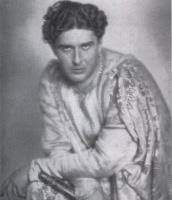 Sylvia Voinea Julius Patzak 1. A jaunty Mozart overture seems a good excuse to begin with a jaunty Mozart excerpt. Here is "Wie Wie Wie," (That's "Vee Vee Vee," no reference to Bobby intended), the quintet from "The Magic Flute"--specifically, the Ingmar Bergman film version. . .In the second act of this nutty Masonic-influenced fable, Tamino and Papageno The Bird-Catcher are led by two priests for the first of three trials. The purpose of the trials? To find enlightenment---you know, the same reason people follow Saturdee Opry Links. The two priests advise Tamino and Papageno of the dangers ahead, specifically of wiley women(!) who might persuade them away from the straight-and-narrow. They are sworn to silence. Well, wouldn't you know it? Three ladies (attendants of the Queen of the Night!) magically appear, and try to scare Tamino and Papageno into speaking. Those wiley, wiley women! The quintet, "Wie, wie, wie" (or "How, how how") ensues. Papageno, being highly strung, cannot resist answering, but Tamino remains aloof, angrily instructing Papageno not to listen to the harridans! Seeing that Tamino will not speak, les dames withdraw in confusion. https://www.youtube.com/watch?v=xsD2j_tZ8nA
Mit der Englische Subtitlen!
Okay, okay. . .
https://www.youtube.com/watch?v=LK0pOXyV9fQ
3.
 https://www.youtube.com/watch?v=7gqDuLWJQ80 Synopsis: Fidelio (who is really Leonora in disguise) has done a job for Rocco the Jailer. Rocco promises that he will reward Fidelio by allowing him to marry his daughter, Marzelline. He warns, however, that a happy marriage needs more than love. Gold, he insists, is the key to connubial bliss. Who, he asks, can be happy if you are hungry all the time? http://www.aria-database.com/translations/fidelio04_gold.txt 4. Hear the sledges with the bells— Silver bells! What a world of merriment their melody foretells! How they tinkle, tinkle, tinkle, In the icy air of night! While the stars that oversprinkle All the heavens, seem to twinkle With a crystalline delight; Keeping time, time, time, In a sort of Runic rhyme, To the tintinabulation that so musically wells From the bells, bells, bells, bells, Bells, bells, bells—
From the
jingling and the tinkling of the bells.---From "The
Bells," by Edgar Allan Poe.

Voinea
Sylvia Voinea was one of the greatest coloratura
sopranos in the world, from the late 60's to the end of the 20th
Century, and you've likely never heard of her. She is proof that one
need never sing in the USA in order to achieve greatness in opera,
having spent most of her career in her native Romania, and Europe.
She is still with us, having been professor of bel canto at the
National University of Music in Bucharest since 1990. Here she is at
her peak, with the spritely vocal athleticism of the whimsical "Bell
Song," from "Lakme," by Leo Delibes, in a delightful old clip. https://www.youtube.com/watch?v=Exe6PxfE6q4 Synopsis : Ordered by her father, Lakmé sings the legend of the pariah's daughter. This is the tale of a girl walking through the forest at night, who comes upon a stranger who has been attacked by wild animals. The girl valiantly rings a magic bell on a wand and saves the man. Lucky thing, too. The man turns out to be Visnhu, the son of Brahma the Creator, and as a reward, whisks her up to Facebook, I'm sorry, I mean paradise. Can't imagine how I got the two confused. Translation: http://www.aria-database.com/translations/lakme02_bell.txt About Ms. Voinea: https://festivaluldearte.com/2020/11/10/soprano-associate-prof-univ-dr-silvia-voinea/ Saturdee Opry Links will be back after this important message.
5.
 I am the Spirit that eternally denies everything: the star, the flower. My mocking laughter and my quarrelling disturb the Creator's rest. Setting: Faust's study, Frankfurt, Germany, medieval times. Synopsis: Mefistofele reveals his true nature to Faust, singing a little paean to, oh, evil. https://www.youtube.com/watch?v=qJeyQupAfro Translation: https://opera-cat.livejournal.com/tag/composer:%20boito.arrigo?utm_medium=endless_scroll
SOL EXTRA!
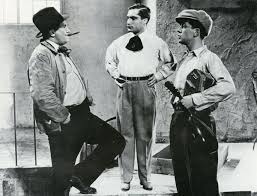 https://basiaconfuoco.com/2022/02/11/ein-stern-fallt-vom-himmel-the-short-life-of-joseph-schmidt/ 6. 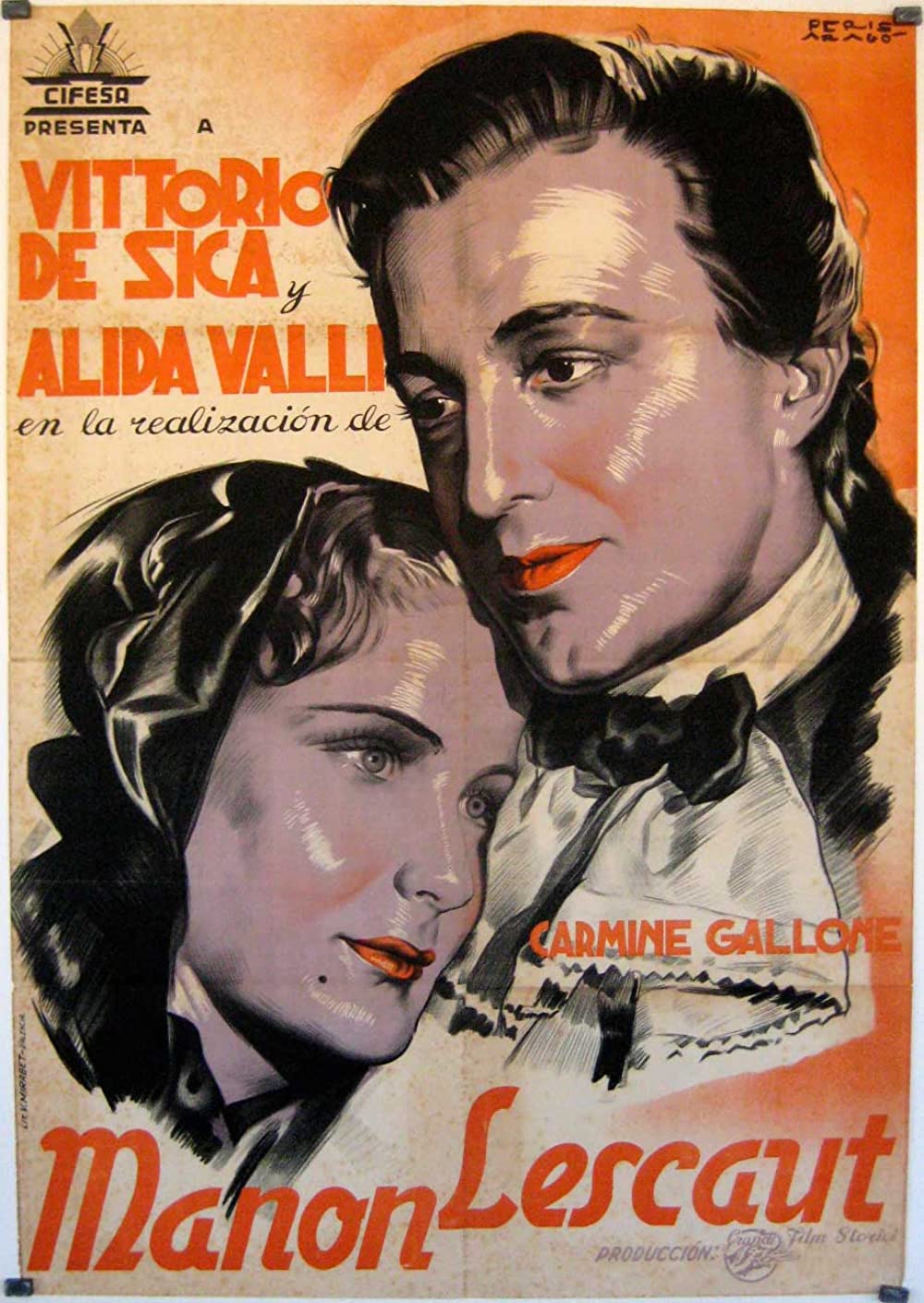 Perhaps one day, SOL will get ambitious enough to devote an entire edition to the three operas about Manon---the femme fatale central character of the 1731 novel "L'histoire du chevalier des Grieux et de Manon Lescaut" by Abbé Prévost. But for today, SOL will focus on one aria from each opera. First is what is commonly known as "La Reve" ("The Dream"), or "En fermant les yeux," a work that is fairly limp with lovesickness, from "Manon," by Massenet. This is an especially gentle reading of the aria, by forgotten tenor Julius Patzak (see post # 2), in German instead of original French. https://www.youtube.com/watch?v=eYiUyFCUjp8 Setting: Apartment of Chevalier Des Grieux, Paris, France, 18th century. Synopsis: In order to cheer Manon up, Des Grieux relates to her a dream that he has had. He has dreamed that someday he will own a house surrounded by beautiful flowers and singing birds. However, he realizes that his dream was still drear because it lacks one thing : Manon. Translation: https://www.opera-arias.com/massenet/manon/en-fermant-les-yeux/ WHOOPS! Oh, wait---I already did!
7.
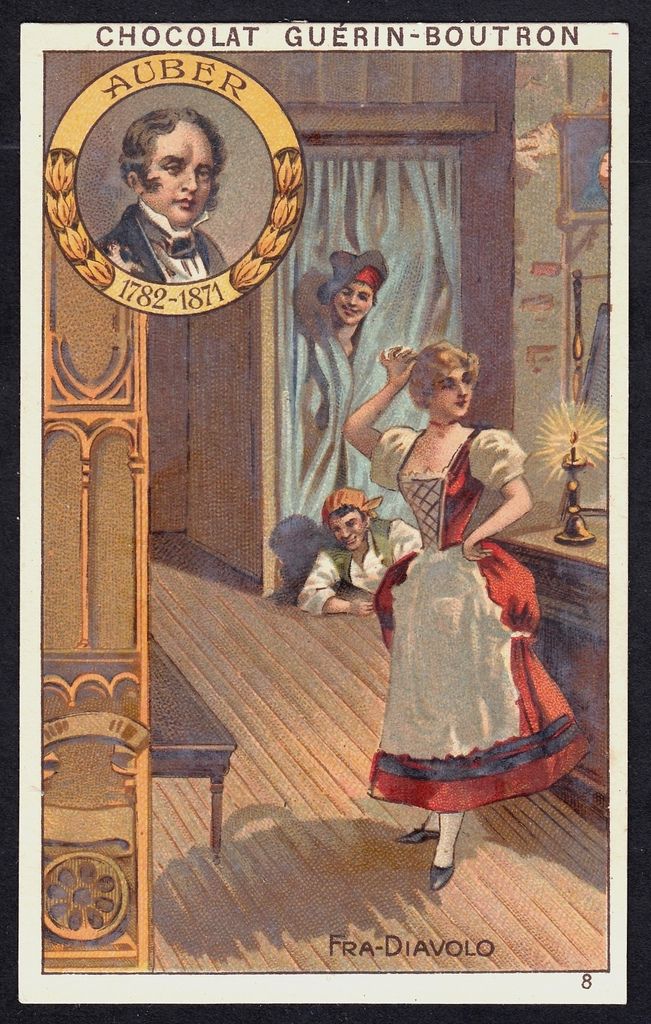
About Ms. Vidal:
http://www.classicalmusicguide.com/viewtopic.php?t=41882 It-is the-story love, as fabulous as as-it-is fantastic, (however incredible,) of a proud gallant in arms! Ah ah ah ah... Of a tender commissioner thought to be severe and who was not Ah ah ah ah. He loved a beautiful, ah ah! He wanted some, but she, ah ah, from him did not want! Ah ah ah ah. But do you want to learn the name of this Léandre, traitor like Judas! Her name? You will laugh. I'm going to tell you very low... very low... No, no, I will not say it! La la la la... French: C'est l'histoire amoureuse autant que fabuleuse, as-it-is fantastic, d'un galant fier à bras! ah ah ah ah... D'un tendre commissaire que l'on croyait sévère et qui ne l'était pas Ah ah ah ah. Il aimait une belle, ah ah! Il en voulait, mais elle, ah ah, de lui ne voulait pas! Ah ah ah ah. Or, voulez-vous apprendre le nom de ce Léandre, traître comme Judas! Son nom? Vous allez rire. Je m'en vais vous le dire bien bas... tout bas... Non, non, je ne le dirai pas! La la la la...
8.
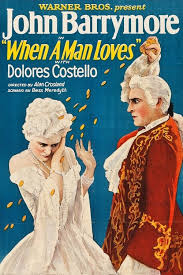 Yes, this was based on "Manon." https://www.youtube.com/watch?v=keHgz1Ra8Kk Translation (scroll down):
Annnnnd, just for the sake of comparison, and not
being distracted by images, here is Maria Callas:
https://www.youtube.com/watch?v=nZv9ilT2Dsk
9.
Okay, one more for Manon. . .Puccini was warned, when he undertook writing "Manon Lescaut," that Massenet had already written it ten years earlier. He was undeterred, perhaps not surprisingly. and said, with characteristic bravado: "Manon is a heroine I believe in and therefore she cannot fail to win the hearts of the public. Why shouldn't there be two operas about Manon? A woman like Manon can have more than one lover. Massenet feels it as a Frenchman, with powder and minuets. I shall feel it as an Italian, with a desperate passion!" Well. Here is an aria from Puccini's "Manon Lescaut" that conveys nothing if not desperate passion. When Des Grieux first spots Manon on the arm of Geronte, arriving at an inn near the gates of Paris, he is gobsmacked, smitten, and otherwise deranged with hormones. After Manon leaves, he sings to his fellow student-friends, "Donna non vidi mai" ("Never have I seen such a woman"). One of the great Puccini tenor arias, but of course. . .Here is tenor Mario del Monaco, live on stage in 1951, stretching the high note to three times its written length. He knew what opera was for. https://www.youtube.com/watch?v=ad4TKiuAiCs Translation: https://en.wikipedia.org/wiki/Donna_non_vidi_mai
FINAL BOW:

If you suspect that the last four posts were done
for Valentine's Day, allow me to remind you that Manon dies in
the end, of thirst, hunger, and a broken heart. If you wish to
somehow consider this apt, by all means, please do. I thought
about posting something in honor, I mean horror, of the Stupor
Bowl---you know, like "Brunhilde's Immolation" from Wagner's
"Gotterdammerung," in which the world ends, but I figured that
was too obvious, and no one would understand the commentary. So
I opted for something quieter. There is so little quiet left in
the world, after all. With tickets for the Super Bowel going for
$8000, and Putin about to commit mass-murder in Ukraine, and
young thugs shooting, stabbing, robbing at ever-increasing
rates, and inflation, and anti-vax lunacy, and the Internet
making billions from hatred and lies, and Amazon setting a new
standard for ecosystem destruction, and Congress overrun with
knuckle-draggers, and people complaining that the "supply chain"
crisis has deprived them of bacon and Diet Coke, and fatuous
Amerryguns conflating owning SUV's with their Constitutional
rights, and "liberty" with anarchy, and it being 87 degrees in
February. . .well, here is Joyce Di Donato with "Lascia ch'io
pianga" from Handel's opera, "Rinaldo." "Let me weep."
Setting: a
garden in Argante's palace, Jerusalem, Palestine, during the
Crusades
Synopsis:
Almirena has been abducted by the sorceress Armida and
imprisoned in the palace. She laments her fate.
Translation: https://lyricstranslate.com/en/lascia-chio-pianga-leave-me-so-i-may-cry.html 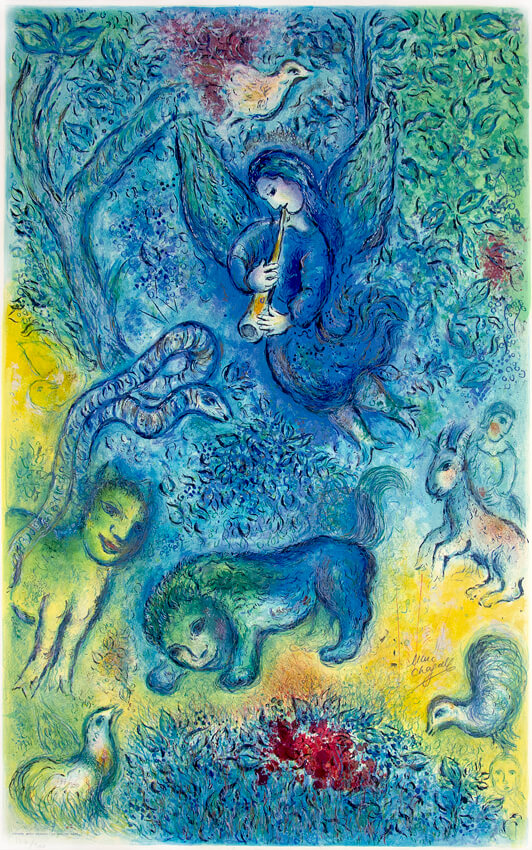
(Chagall illustration for "Magic Flute")
|